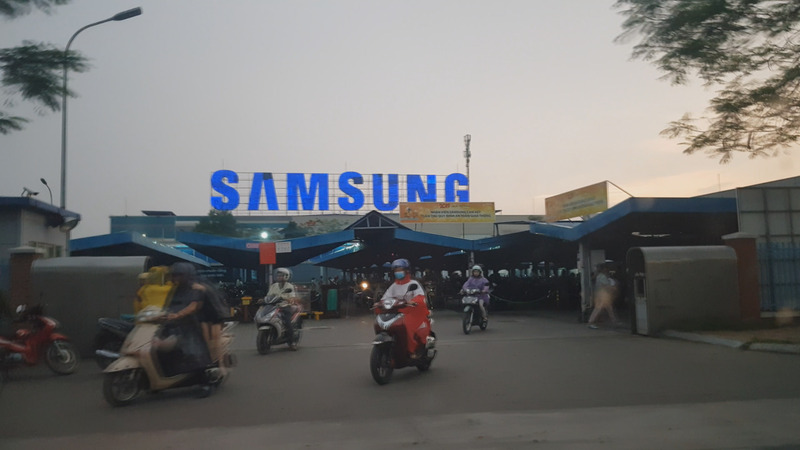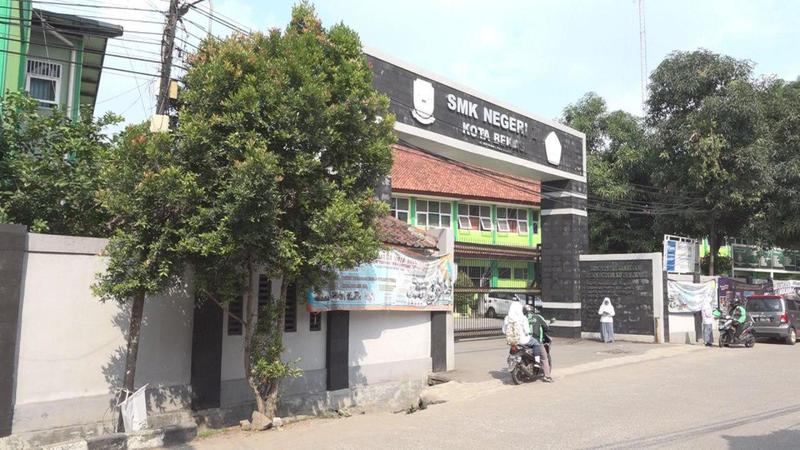Posted on : Jun.23,2019 15:48 KST
Modified on : Jun.24,2019 16:57 KST
The S. Korean electronics giant habitually exploits young workers in overseas factories
Samsung is exploiting the young people of Asia, while crossing the boundary from the ethically dubious to the outright illegal. Youth who are hired as irregular workers stick with grueling jobs with the hope of a permanent position only to be kicked out of the job when they reach their mid-20s. Though Samsung prides itself on being one of the world’s leading companies, its working conditions are barely sufficient for these workers to keep food on the table.
At Samsung Electronics plants in India, Vietnam, and Indonesia, Hankyoreh reporters found that the company was engaged in various activities that either skirted local laws and international standards or overtly violated them. Workers at plants in these countries shared their personal experiences with violations of minimum wage and probationary worker laws, forced labor, unfair termination, and verbal abuse, among other matters.
 |
|
Samsung factories in Asia
|
Short contracts aimed at dodging benefits, plus violations of minimum wage laws
At the Samsung Electronics plant in Cikarang, West Java, Indonesia, six-month contracts were a common occurrence. The goal was to slam workers during the peak period, between July and December, and then avoid the religious holiday allowance that’s paid once a year, as a kind of bonus, in January. Local workers said that foreign companies typically offer one-year contracts and that Samsung is the only one with contracts that are six months long or even shorter. The Cikarang factory produces 1.8 million mobile phones and other electronic goods each year, supplying the domestic market.
Workers who were interviewed in front of the factory said that, aside from the technical engineers and the managers, most of the workers are on short-term contracts. According to labor laws, short-term contracts are only valid for work of a temporary nature, but a large number of the contract workers that reporters met there were working on the same production line as regular workers.
 |
|
Workers leaving the Samsung Electronics factory in Vietnam’s Bắc Ninh Province on May 14. (Cho So-young, Hankyoreh TV producer)
|
23 years is too old to be working at Samsung
“I produced items on the line. When we had a high volume, I would work overtime every day, and work on the weekends, too. There were some female workers who fainted from exhaustion,” said a 23-year-old identified by the pseudonym of Herpin who worked on the DVD production line on two six-month contracts.
After his contract period was over, Herpin wasn’t able to keep working at Samsung. “My contract wasn’t extended because I’m too old; 23 is pretty old to be working at Samsung,” he said.
According to local workers and representatives of vocational schools, workers who have graduated from vocational schools work at Samsung for one to five years in their late teens and early 20s, until their contracts are terminated. This system rotates out contract workers when they reach their mid-20s and replaces them with contract workers in their late teens. With the world’s fourth-largest population, Indonesia is crowded with young people who are eager for jobs.
Samsung has also been violating minimum wage laws. Contract workers at the Cikarang plant weren’t paid the industrial minimum wage. Workers in the Indonesian electronics industry are supposed to be paid 4,632,985 rupiah per month, worth around US$325.63, but Samsung only did so for its regular workers. Contract workers were paid the lower regional minimum wage of 4,146,126 rupiah (US$291.04). According to the Indonesian Metal Workers Federation (FSPMI), other international electronics firms such as Panasonic and Sanyo had paid the industrial minimum wage to irregular workers, while only Samsung didn’t obey the law.
In 2011, there was a blowup about the illegal recruitment of millions of outsourced workers on the production line at the Cikarang plant. The company also provoked an outburst from workers when it only paid them for two hours of overtime when they’d actually worked four or more hours a day during the peak season.
 |
|
A vocational school in Bekasi, West Java, Indonesia; many graduates go on to work for Samsung Electronics as contract workers. (Kim Do-seong, Hankyoreh TV producer)
|
Rotating probationary workers: a low point for a top-tier company
Reporters learned about frequent instances of the company taking advantage of young workers, again in their late teens and early 20s, by exploiting loopholes in laws about probationary work. Among the sites covered in this story, the most malicious exploitation of probationary work occurred at the Noida factory in India. By 2020, this factory will be producing 120 million of the 530 million smartphones that Samsung makes every year. This is a key Samsung plant — its ribbon cutting ceremony, held in July 2018, was attended by South Korean President Moon Jae-in, along with Samsung Electronics Vice Chairman Lee Jae-yong and Indian Prime Minister Narendra Modi.
In India, probationary work is allowed for the purpose of vocational education and on-the-job training. But at the Noida factory, probationary workers aren’t given practical training — they’re immediately put to work manufacturing products. Related laws prohibit probationary workers from being paid based on performance or given incentives according to their output, with violations subject to a fine or six months in prison.
According to current and former probationary workers who spoke with the Hankyoreh, between 10% and 40% of workers on the production line are probationary workers, ranging from vocational school students in their late teens to university underclassmen in their early 20s.
“The pressure to produce was really severe,” said a 21-year-old probationary worker that we’ll call Taru who assembled 2G feature phones at the Noida factory. Taru was assigned a daily quota of 1,600 feature phones or 800 4G smartphones and would work overtime until he
met his goal. The law prohibits probationary workers from working overtime.
A 21-year-old — let’s call him Junup — who did three months of probationary work said his supervisor would get verbally abusive when he didn’t meet his quota. “If you don’t like working here, you can quit right now,” Junup quoted his supervisor as saying. Junup wasn’t even allowed to take a day off when he was sick. Preventing workers from taking leave for legitimate reasons is illegal, too.
 |
|
Samsung‘s overseas violations of labor laws
|
Probationary workers lured by false promise of permanent regular position
Indian probationary workers said they receive a monthly salary of between 9,000 and 10,000 rupees, or between US$126.53 to US$143.40. That falls far short of the monthly minimum wage for semi-skilled workers of 15,400 rupees (US$220.99). (In India, the minimum wage varies with skill level.) Many workers did two years of probationary work, drawn by the tantalizing possibility of being hired as a regular worker, but for most of them, that never happened. Indian law requires that contract workers be fired or converted to regular workers after two years, but Samsung found questionable ways to rehire probationary workers by changing their category of work. A labor education center in India estimated that the regular worker conversion ratio for probationary workers at Samsung Electronics was in the single digits.
Workers at Samsung Electronics factories in Indonesia and Vietnam said that probationary workers had been placed on the production line there, too. Since they were employed for short periods or less than a year, it was impossible to ascertain the exact number of workers. Putting probationary workers to work on the production line is also illegal in those countries.
“Samsung has a terrible record of labor exploitation, even compared to other global companies. It severely exploits irregular workers, including interns and temp workers in overseas factories. Other companies sometimes imitate Samsung’s shameful strategies,” said Fahmi Panimbang, director of an Indonesian labor organization called LIPS.
Samsung subjects the youth of Asia to harsh labor conditions. This violates Samsung’s promise to protect labor rights and the rights of overseas workers that are stipulated in the migrant workers’ guidelines that the company announced in 2016. It also violates the company’s declaration to strictly comply with international norms, including the UN’s guidelines for corporate implementation of human rights, the OECD’s guidelines for multinational corporations, and the International Labour Organization’s declaration on the basic rights of workers.
By Ock Kee-won and Lee Jae-yeon, staff reporters
Please direct comments or questions to [english@hani.co.kr]











